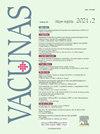Plant system as a versatile and robust platform for the development of vaccines against arboviral infections
Q3 Medicine
引用次数: 0
Abstract
Arboviral infections are predominantly transmitted by arthropods causing significant mortality, morbidity, and represent a major global health concern. These infections pose significant economic burdens especially in endemic regions. Dengue, chikungunya, yellow fever, and zika are the most common arboviral diseases spread by Aedes mosquitoes. Extensive research has been conducted on vector surveillance and vector control strategies to limit the arboviral transmission. However, vaccines remain the most powerful tool in the fight against infectious diseases. Over the years, significant progress has been made in developing vaccines against several infectious diseases. The global disease burden has been drastically reduced due to effective vaccination. The continual threat of arboviral outbreaks necessitates the need for effective vaccine and therapeutic development. For most arboviral diseases, vaccines are not available. Recently, plant-based vaccine development represents a promising platform for the rapid supply of antigens and antibodies for developing diagnostic kits or vaccines against pathogens. The concept of producing pharmaceutically significant and commercially viable therapeutic proteins in plants is defined as molecular farming. Substantial efforts have been made in this field, with improved expression strategies, refinement of downstream processing, and sufficient evidence showing the immunogenicity and efficacy of plant-produced recombinant proteins. Currently, few plant-produced vaccine antigens have reached the clinical trials. Notably, the plant-produced COVID-19 vaccine, Covifenz has been approved by Canada, and plant-produced influenza candidates showed safety and efficacy in clinical trials. In this review, we briefly summarize the potential of plant-derived vaccines in the fight against arboviral infections.
将植物系统作为开发预防虫媒病毒感染疫苗的多功能稳健平台
节肢动物病毒感染主要通过节肢动物传播,造成大量死亡和发病,是全球关注的主要健康问题。这些感染造成了巨大的经济负担,尤其是在流行地区。登革热、基孔肯雅热、黄热病和寨卡病是伊蚊传播的最常见的虫媒病毒疾病。为了限制虫媒病毒的传播,人们对病媒监测和病媒控制策略进行了广泛的研究。然而,疫苗仍然是抗击传染病最有力的工具。多年来,针对几种传染病的疫苗研发取得了重大进展。有效的疫苗接种大大减轻了全球疾病负担。由于虫媒病毒爆发的威胁持续存在,因此有必要开发有效的疫苗和疗法。对于大多数虫媒病毒疾病,目前还没有疫苗。最近,以植物为基础的疫苗开发为快速提供抗原和抗体以开发病原体诊断试剂盒或疫苗提供了一个前景广阔的平台。在植物中生产具有药用价值和商业价值的治疗蛋白的概念被定义为分子农业。人们在这一领域做出了巨大努力,改进了表达策略,完善了下游处理过程,并有充分证据表明植物生产的重组蛋白具有免疫原性和有效性。目前,很少有植物生产的疫苗抗原进入临床试验阶段。值得注意的是,植物生产的 COVID-19 疫苗 Covifenz 已获得加拿大批准,植物生产的流感候选疫苗在临床试验中显示出安全性和有效性。在这篇综述中,我们简要总结了植物源疫苗在抗击虫媒病毒感染方面的潜力。
本文章由计算机程序翻译,如有差异,请以英文原文为准。
求助全文
约1分钟内获得全文
求助全文
来源期刊

Vacunas
Medicine-Infectious Diseases
CiteScore
3.90
自引率
0.00%
发文量
138
审稿时长
62 days
期刊介绍:
Sin duda una de las mejores publicaciones para conocer los avances en el campo de las vacunaciones preventivas, tanto en el ámbito de la investigación básica como aplicada y en la evaluación de programas de vacunaciones. Su alta calidad y utilidad la ha llevado a estar indexada en los prestigiosos índices IME y SCOPUS.
 求助内容:
求助内容: 应助结果提醒方式:
应助结果提醒方式:


